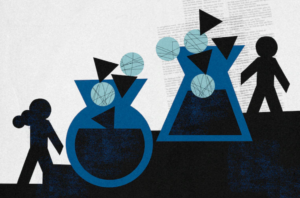Female Scientists Don’t Get the Credit They Deserve. A Study Proves It.
Female scientists are “significantly less likely” than men to be credited as authors on scholarly articles or named on patents to which they contribute — a systemic exclusion that probably has negative impacts on female scientists’ careers, according to a new study published in the journal Nature.
The study, published Wednesday, found that female scientists are 13 percent less likely than men to be named as authors on articles and 58 percent less likely than men to be named on patents, even while controlling for factors including job title, field, team and days worked. As the study’s authors write, the findings suggest that women’s contributions to science continue to be underestimated, 70 years after the British chemist Rosalind Franklin was denied credit for her role in the discovery of the structure of DNA.
“These are pretty big gaps, and they’re incredibly persistent,” said co-author Britta Glennon, assistant professor of management at the University of Pennsylvania’s Wharton School of Business.
The disparities exist across various fields and at different phases of female scientists’ careers, starting at the very beginning, the study found: About 15 percent of female graduate student contributors are ever named on a document, compared with about 21 percent of male graduate students who contribute to research. (Women graduate students also constituted a lower proportion of graduate students overall in the data set sample — at 17 percent — compared with men, who made up 25 percent.)
The findings — which come from an extensive data set and were confirmed by a survey and follow-up interviews — both partially explain and probably contribute to the underrepresentation of women in science, Glennon said: “If you’re seeing that you’re not getting credit for the work that you do, or even that your senior female colleagues aren’t getting credit for the work that they do, that’s pretty discouraging — so I think we would all be very surprised if there weren’t a significant impact on careers.”
